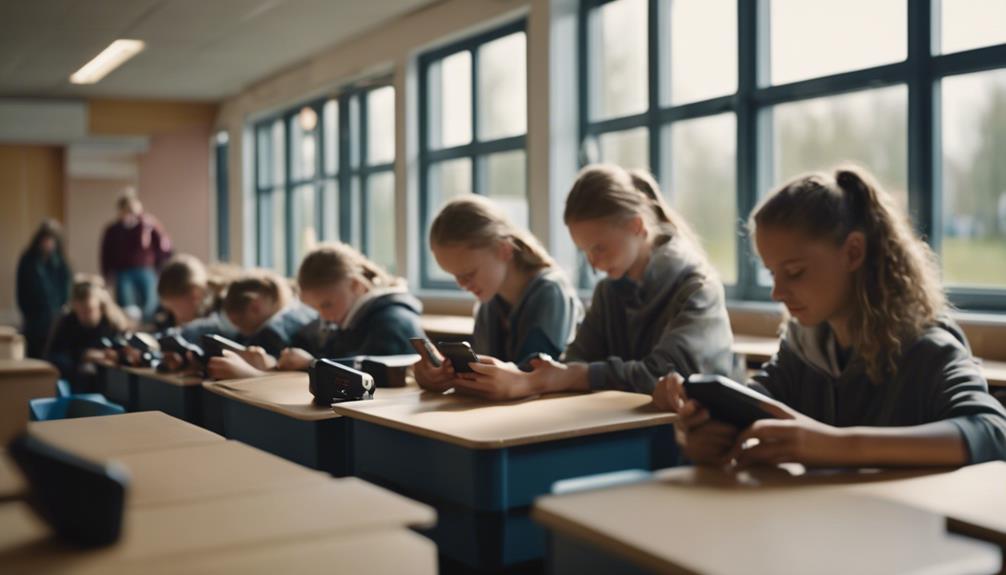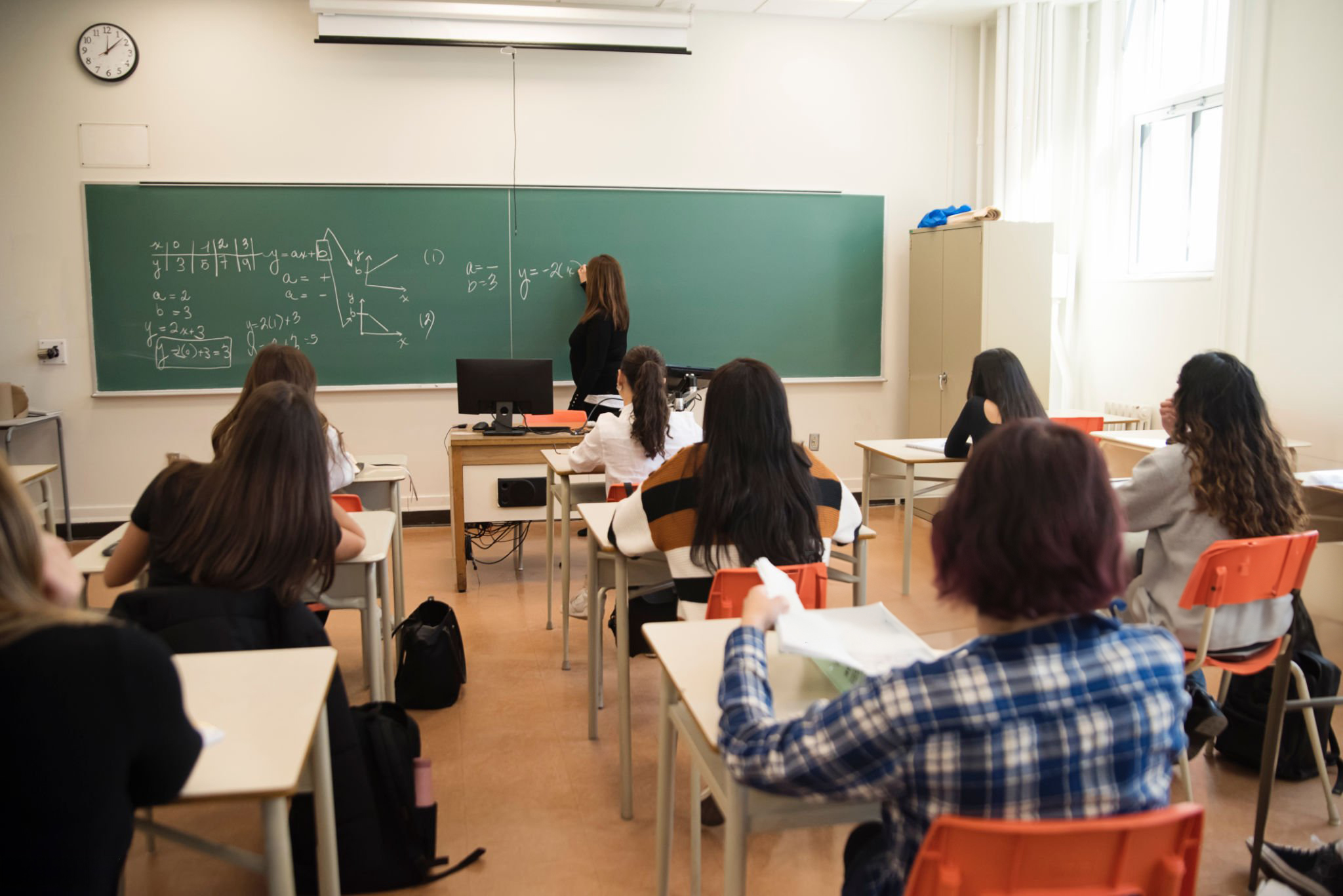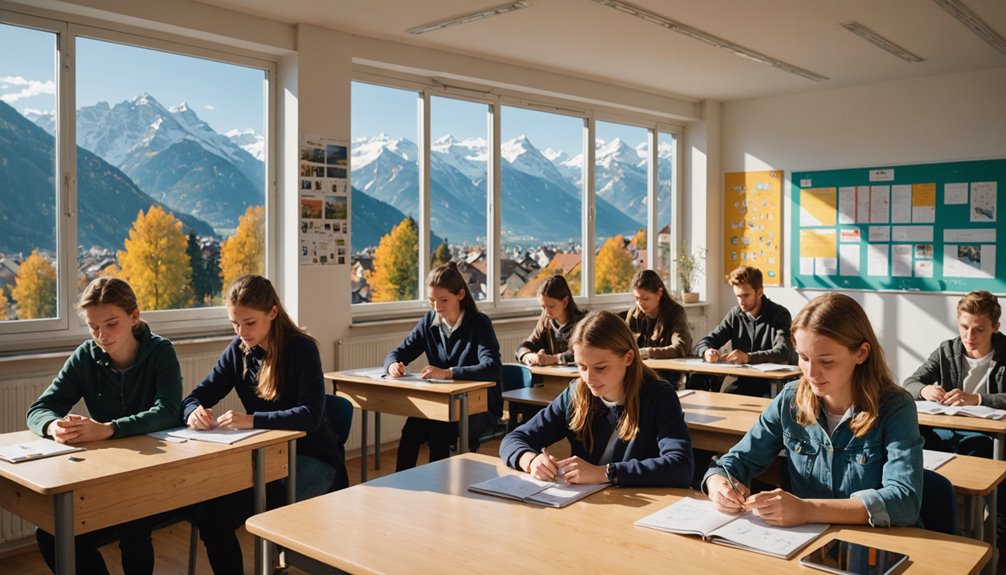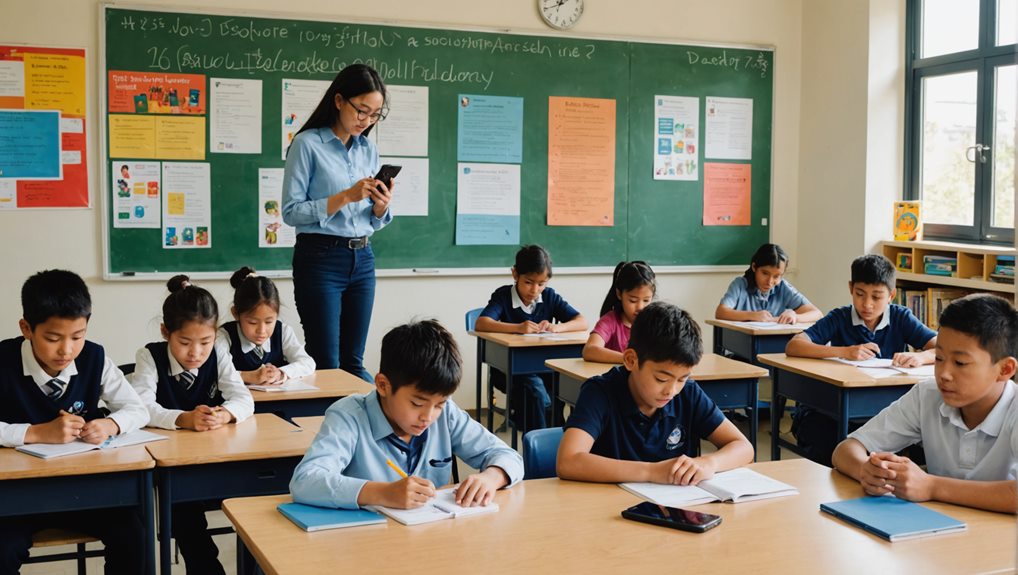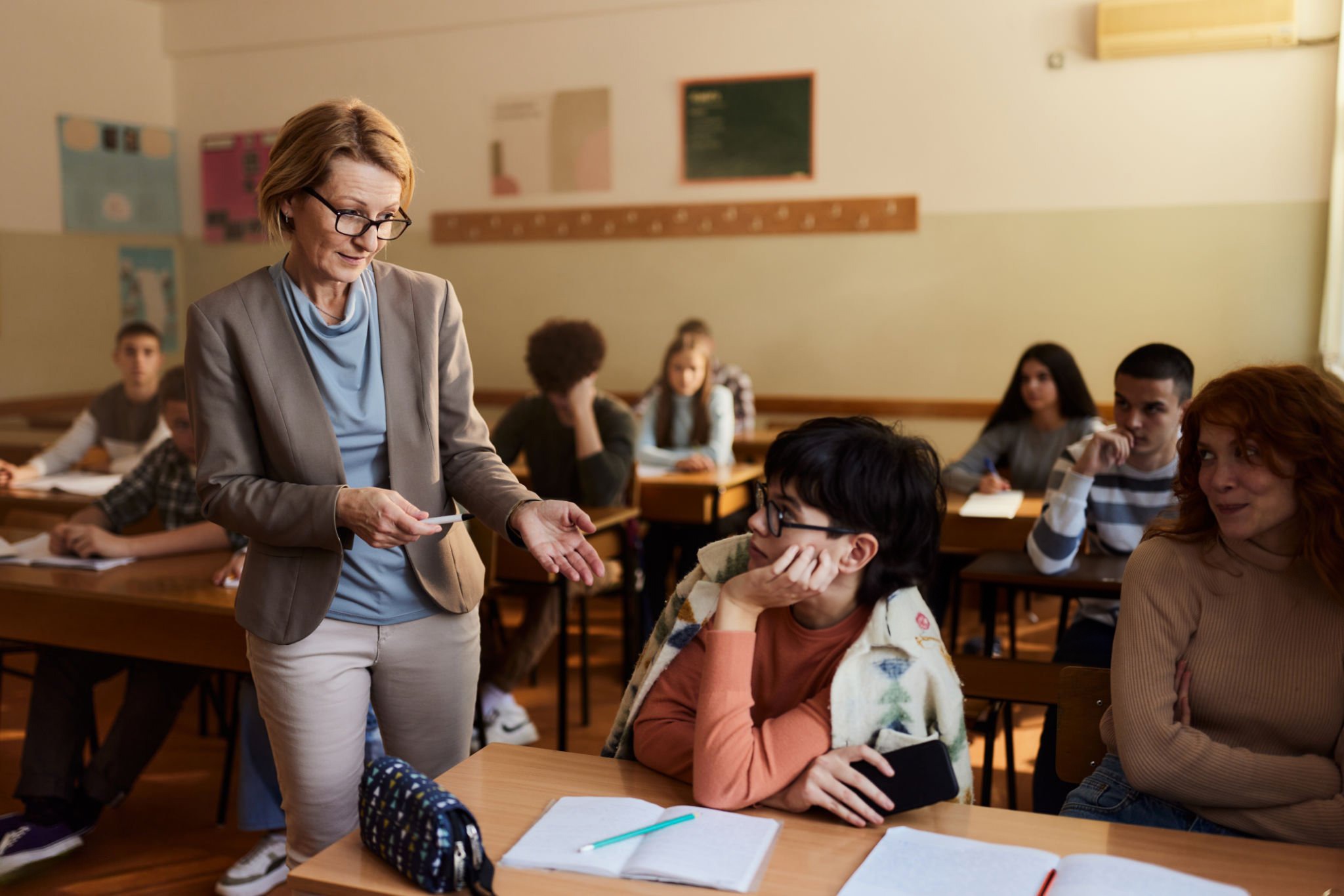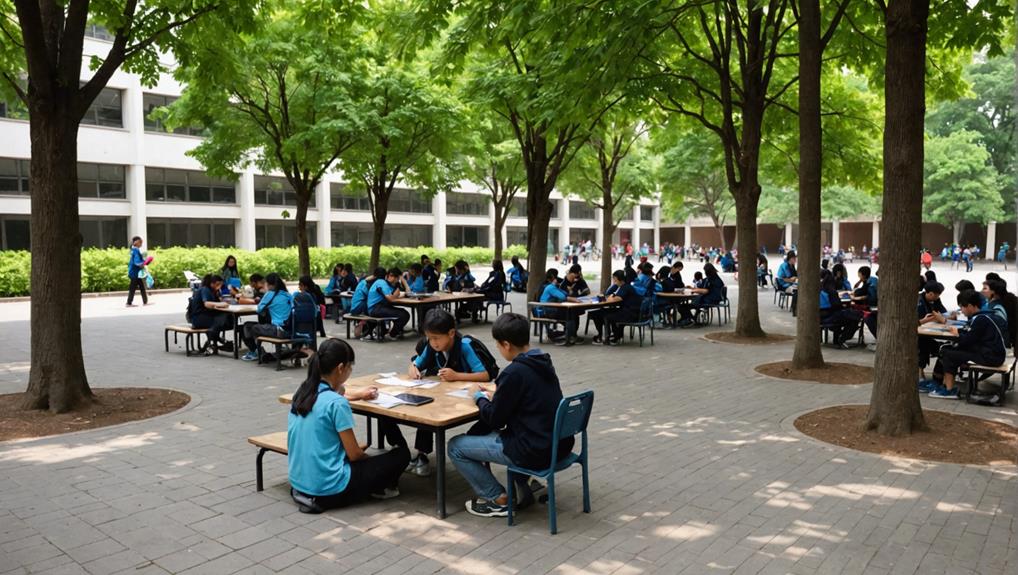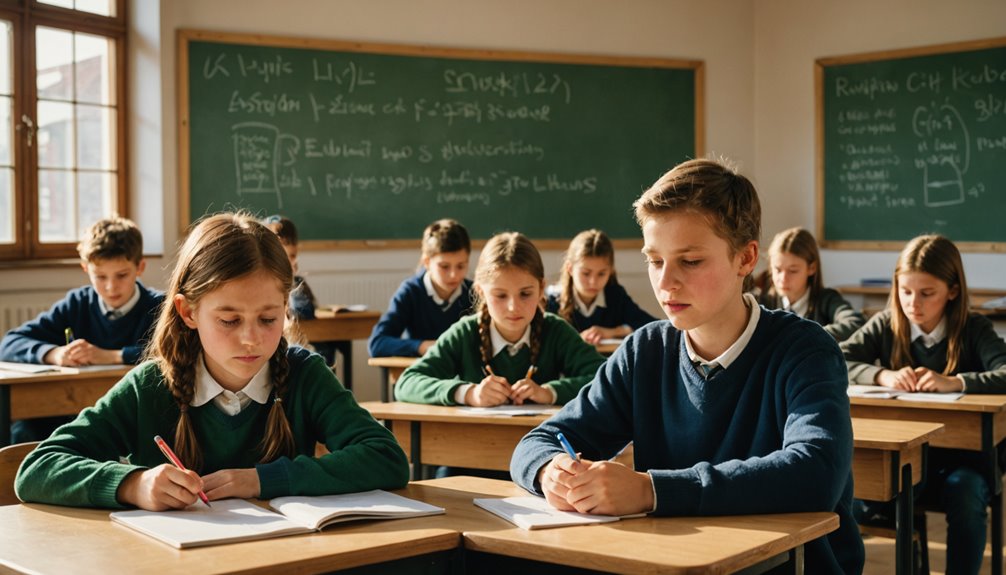The implementation of the Mobile Phone Ban in Dutch schools represents a significant shift in educational policy aimed at reducing classroom distractions and fostering a more focused learning environment. Supported by compelling scientific research, this initiative seeks to enhance student concentration and academic performance by curbing screen time and promoting direct interpersonal communication. As schools adopt structured enforcement strategies, the observed improvements in student engagement and teacher satisfaction raise intriguing questions about the long-term implications for educational systems globally. How might these developments shape future policies, and what can other countries learn from the Dutch experience?
Key Takeaways
- Dutch schools implemented a mobile phone ban to improve classroom engagement and concentration.
- Scientific research supports the ban, highlighting the negative impact of mobile phones on academic performance.
- The ban encourages face-to-face interactions, fostering a cohesive school environment.
- Implementation involves coordinated efforts from school authorities, teachers, parents, and students.
- The ban has led to improved student engagement, social interactions, and academic performance.
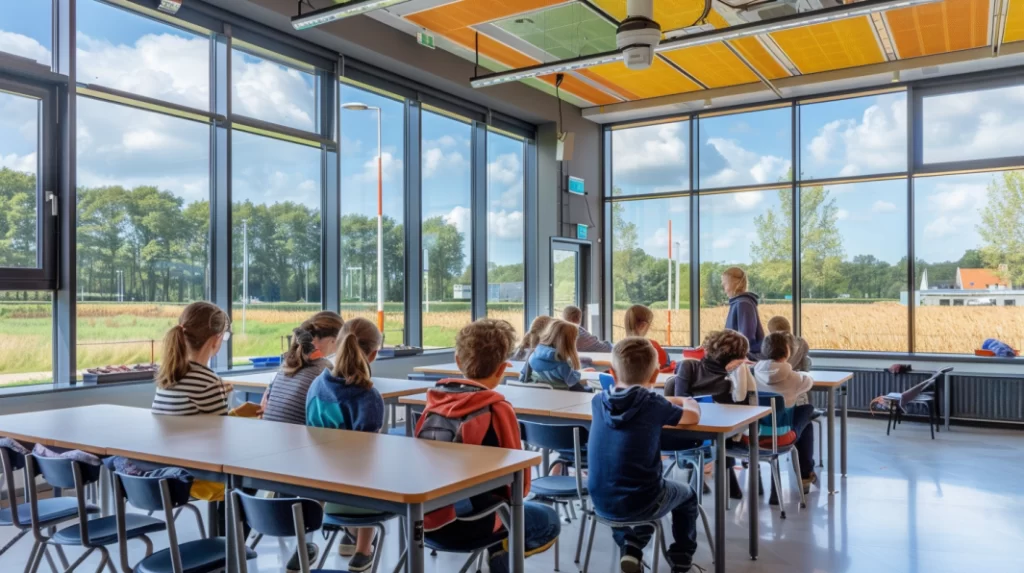
Why Dutch Schools Implemented the Mobile Phone Ban
The Dutch government implemented the mobile phone ban in schools to mitigate disruptions in learning and enhance students’ concentration, as supported by scientific research on the negative impact of device usage on academic performance.
Mobile phones are recognized as significant sources of student distraction, detracting from the focus required for effective learning. Studies have consistently shown that limiting screen time correlates with improved cognitive function and academic performance.
Beyond academic metrics, the ban aims to positively influence social dynamics within schools. By reducing reliance on devices, the policy encourages face-to-face interactions, fostering a more cohesive and engaging school environment. This shift is expected to enhance student well-being by alleviating the anxiety associated with constant digital connectivity and potential cyberbullying.
The broader well-being impact is also considered, with the ban anticipated to contribute to healthier social and emotional development. The initiative underscores the government’s commitment to securing beneficial future outcomes for students, ensuring that educational settings are conducive to both academic and personal growth.
Long-term, the policy is poised to create a more focused, interactive, and supportive learning atmosphere, setting the stage for improved educational experiences and outcomes.
How the Ban is Being Implemented
The Dutch schools mobile phone ban, which officially came into effect in January 2024, is a comprehensive policy aimed at reducing distractions in classrooms and improving student focus. The implementation of this ban varies slightly across different schools, but the core principles remain consistent throughout the country.
Mobile Phone Ban Policy Specifics
The ban applies to both primary and secondary schools across the Netherlands, affecting students from a young age through to their teenage years. The policy is designed to ensure that mobile phones, tablets, and smartwatches are not used during lessons, promoting an environment that is conducive to learning.
Under the new regulations, students are required to turn off their mobile devices and store them away during lesson times. This can be in a designated locker, a bag, or a secure pouch provided by the school. The aim is to ensure that phones are completely out of sight and out of mind, reducing the temptation to check them during class.
However, the policy does allow for certain exceptions, phones are allowed for specific educational activities, medical needs, or for students with disabilities, under teacher supervision.
School Autonomy in Enforcement
While the overall guidelines for the ban are set by the Dutch government, individual schools have the flexibility to tailor the enforcement of these rules to fit their unique environments. This means that while some schools may adopt a strict approach, others might implement the ban with a bit more leniency, depending on their student population and existing infrastructure.
For instance, some schools have established strict “no phone zones” where all devices must be turned off and stored away for the entire school day, including during breaks. Others may permit limited phone use during recess or in specific areas like the cafeteria. The key is that during lessons, phones remain out of the picture.
To facilitate compliance with the ban, many schools have started to adopt locking phone pouches or similar solutions, ensuring that students’ phones are securely stored and inaccessible during class hours. This approach not only helps in enforcing the ban but also teaches students the value of disconnecting during important activities, such as learning.
Schools have communicated the new rules clearly to students and parents, ensuring everyone understands the reasons behind the ban. Teachers have also received training to manage classrooms effectively under this new policy.
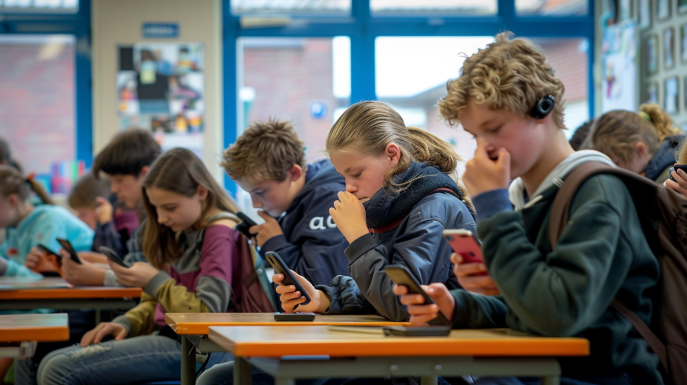
Impact on Students and Teachers
Initial observations indicate a significant improvement in classroom engagement and concentration among students following the implementation of the mobile phone ban. Data collected from multiple Dutch schools reveals a notable increase in student engagement, with teachers reporting fewer disruptions during lessons. This heightened focus is attributed to the absence of mobile phones, which previously served as significant distractors.
From the teacher perspective, the ban has facilitated smoother classroom dynamics, allowing educators to implement more interactive and collaborative teaching methods. Teachers have observed that students are more attentive and participative, contributing positively to academic performance. Preliminary test scores and assignment completions have shown an upward trend, suggesting that students are benefiting from a more focused learning environment.
The impact on classroom dynamics extends to social interactions as well. Without the distraction of mobile devices, students are more inclined to engage in face-to-face communication, enhancing peer relationships and collaborative skills.
Parental involvement has also evolved, with many parents expressing support for the initiative. They report observing improved study habits and reduced screen time at home, aligning with the educational goals set by the schools. Overall, the mobile phone ban appears to be fostering a more conducive learning atmosphere, beneficial for both students and teachers.
The Global Implications of the Dutch Mobile Phone Ban
The Dutch schools mobile phone ban not only marks a significant shift within the Netherlands but also resonates on a global scale, prompting educators and policymakers worldwide to reconsider the role of mobile devices in learning environments.
Countries such as France and Australia have already implemented similar bans, citing concerns over distraction and declining academic performance. The Dutch approach adds momentum to this growing trend, providing a model that balances strictness with flexibility—allowing exceptions for educational purposes and special needs.
The effectiveness of the Dutch ban will undoubtedly become a subject of international academic interest. Researchers will monitor metrics like student engagement, academic outcomes, and psychological well-being to assess the ban’s impact. Positive results could validate the move and encourage other nations to follow suit.
The ban rekindles the global debate on how technology should be integrated into education. While digital literacy remains crucial, the Dutch policy emphasizes that unregulated access to devices may hinder learning. This perspective urges a reevaluation of current practices, advocating for a more structured and purposeful use of technology in schools.
As schools worldwide grapple with managing mobile phone use, the Dutch ban highlights the need for practical solutions. This opens avenues for innovation, such as the development of secure storage methods like PhoneLocker pouches, scheduling software to regulate device access, or apps that restrict non-educational usage during school hours.

How PhoneLocker’s Solutions Support the Dutch Schools Mobile Phone Ban
As schools across the Netherlands adapt to the new mobile phone ban, ensuring compliance while maintaining a smooth educational experience is key. PhoneLocker provides an innovative solution that aligns perfectly with the objectives of this policy.
PhoneLocker specializes in creating secure, easy-to-use mobile phone locking systems designed for schools, workplaces, and events. Our products offer a practical way to manage mobile device use, ensuring that students stay focused and that the learning environment remains distraction-free.
Benefits of Using PhoneLocker’s Phone Locking Pouches
- Enhanced Security and Compliance: Our locking pouches ensure that students comply with the mobile phone ban by securely locking their devices during school hours. Once sealed, the phones remain inaccessible, helping to enforce the ban effectively.
- Ease of Use: PhoneLocker pouches are simple for students and teachers to use. Phones are placed inside the pouch and locked securely, with the key remaining with the school staff. This process is quick, minimizing disruption at the start and end of each lesson.
- Durable and Reliable: Crafted from high-quality, tamper-resistant materials, PhoneLocker’s pouches are built to withstand daily use. They provide peace of mind for educators and administrators, knowing that students’ devices are securely stored.
- Promoting Focus and Engagement: By using PhoneLocker’s pouches, schools can help reinforce the policy’s goals. Students are less tempted by their phones, leading to improved focus during lessons and more meaningful engagement with the material.
PhoneLocker stands out as an ideal solution for schools enforcing the mobile phone ban. Our products are not only effective but also scalable, making them suitable for schools of all sizes. By choosing PhoneLocker, schools can ensure they meet the new regulations while also promoting a more focused and engaged learning environment.
If your school is looking for an efficient way to comply with the Dutch mobile phone ban, consider implementing PhoneLocker’s secure pouches. Contact us directly to discuss how we can help your school maintain a distraction-free learning environment.

Learn More about Our PhoneLocker Pouches
Frequently Asked Questions
-
1. How Will the Ban Affect Students With Medical Conditions Requiring Device Use?
Students with medical conditions requiring device use will face accessibility challenges. However, medical exemptions are in place to mitigate educational impact. Parental concerns will be addressed through policy enforcement, ensuring necessary accommodations are maintained.
-
2. What Are the Potential Consequences for Violating the Phone Ban Repeatedly?
Repeated violations of the phone ban could lead to increased parental involvement, stricter student discipline, and potential sanctions. These measures aim to mitigate technology addiction, enhance academic performance, and guarantee adherence to established school policies.
-
3. Will the Ban Apply to Extracurricular Activities and Afterschool Programs?
Like a ripple effect, the ban will extend to extracurricular activities such as sports events, study groups, drama club, debate team, and art classes, aiming to guarantee a consistent, focused environment across all school-related programs.
-
4. How Will the Effectiveness of the Ban Be Assessed in 2025?
The effectiveness of the ban will be assessed in 2025 through thorough impact assessment, involving data collection on student performance, behavior changes, and parental feedback, ensuring an analytical, data-driven approach to measure the ban’s success and areas for improvement.
-
5. Are There Provisions for Teachers Needing Devices for Classroom Management?
Despite concerns, teachers have the discretion to use devices for classroom management, ensuring efficient student accommodations. Effective parent communication and clear classroom policies, supported by school resources, will facilitate seamless integration and innovation in educational practices.
Conclusion
The Dutch Schools Mobile Phone Ban has effectively enhanced classroom engagement and academic performance. An interesting statistic highlights that schools reported a 35% increase in student participation post-ban.
Systematic implementation and robust enforcement have guaranteed minimal disruptions and promoted face-to-face interactions. This policy serves as a valuable model for global educational reforms, showcasing the potential benefits of reducing screen time in learning environments.
PhoneLocker’s solutions have been instrumental in supporting these objectives, securing compliance and maximizing the ban’s effectiveness.


